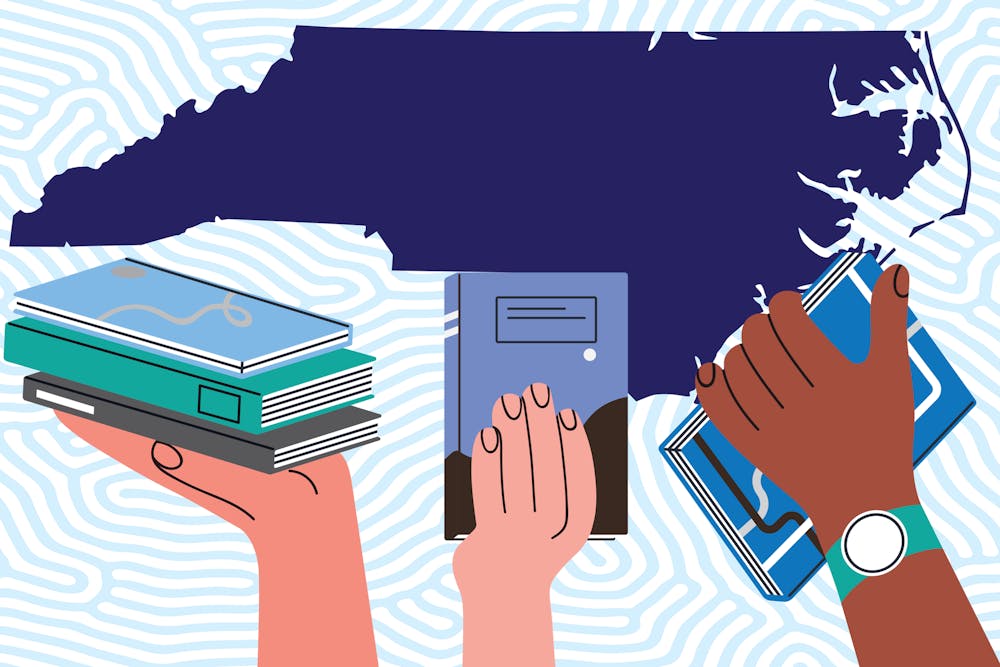Across the United States, there were 695 attempts in schools and academic library settings to censor library materials and services on 1,915 titles from Jan. 1 to Aug. 31 of this year, according to the American Library Association’s Office for Intellectual Freedom.
The number for unique titles challenged has increased by 20 percent from the same reporting period in 2022, the year with the highest number of book challenges since ALA began compiling this data more than 20 years ago.
According to the ALA, most challenged books were written by or about a person of color or a member of the LGBTQ+ community.
Banned Books Week began in 1982 in response to a sudden surge in the number of challenges to books in libraries, bookstores and schools. This year's Banned Books Week, 41 years later, was celebrated Oct. 1-7 with the theme “Let Freedom Read!”
On Sept. 26, the Chapel Hill Public Library kicked off its month-long Right to Read campaign. The campaign encourages community members to write postcards to politicians, library staff members, authors of banned books and readers in hopes of bringing attention to the subjects in the banned books.
But, some community members in N.C. counties have had to deal with book challenges firsthand. In Catawba County Schools, book challenges are common.
In March 2022, Michelle Teague, a member of the county’s board of education, filed requests to have 25 library books removed.
Recently, the board voted 4-3 to restrict the novel "Monday’s Not Coming" by Tiffany D. Jackson to students who are 18 or older after a meeting on Sept. 18. The book was restricted because of its references to sex and profanity.
“I'm a student of history,” Jeff Taylor, a Catawba County Schools Board of Education member who has often voted against book restrictions, said. “I think anytime you're on the side of banning or restricting access to reading materials, you're not on the right side of history.”



